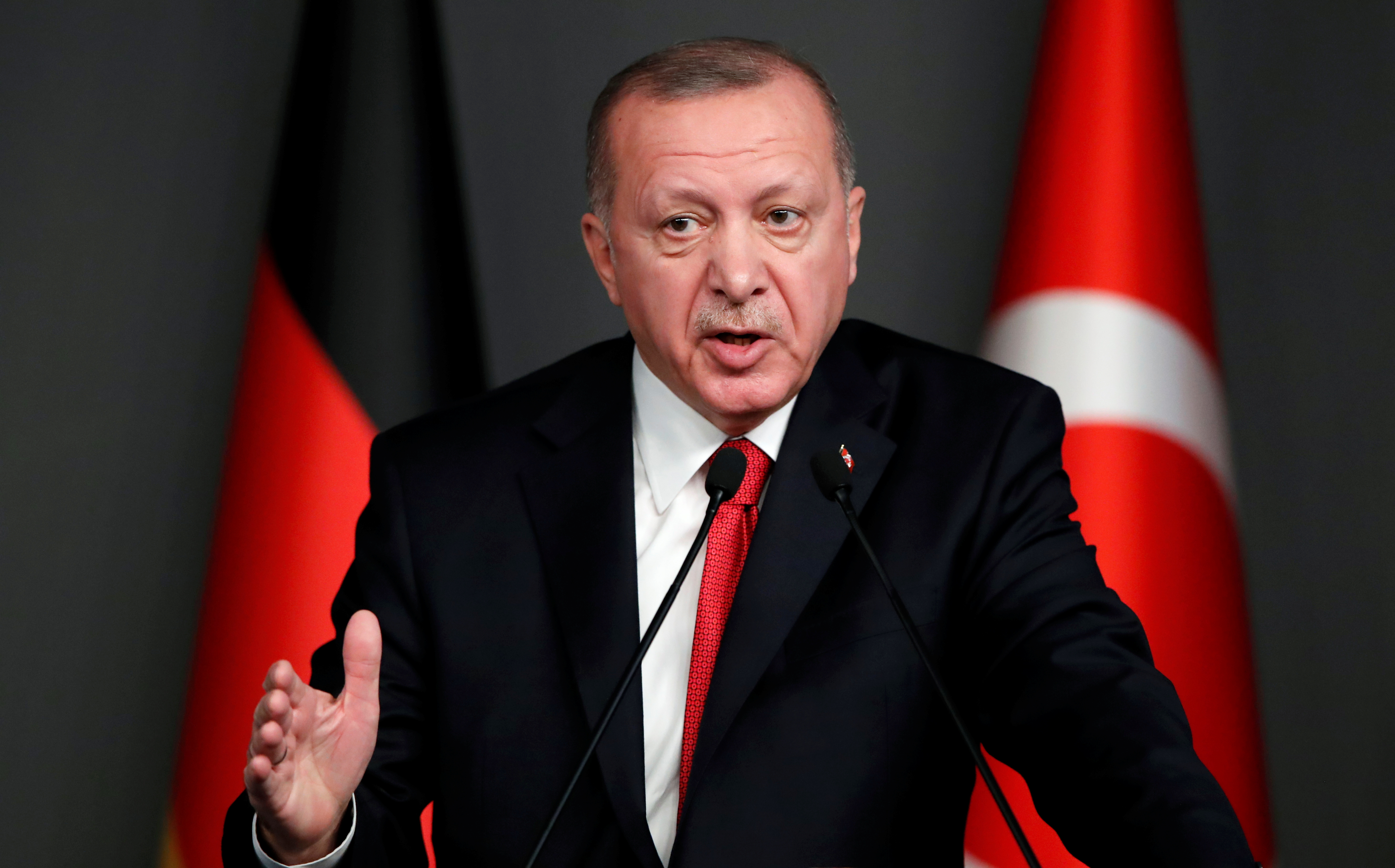
ISTANBUL (Reuters) – Turkey may launch a military operation in Syria’s northwestern Idlib region unless fighting there is quickly halted, President Tayyip Erdogan said on Friday as attacks by Syrian government forces risked a new wave of refugees.
Syrian President Bashar al-Assad’s forces, backed by Russian air power, have made rapid advances in Idlib, the last major rebel-held stronghold in Syria’s nearly nine-year war, in an offensive which has displaced hundreds of thousands of people.
The recent campaign has also raised tensions between Ankara and Moscow, which back opposing sides in the conflict.
Turkey, which already hosts 3.6 million refugees from Syria, fears a fresh wave of migrants from Idlib. It has 12 military observation posts around Idlib, set up under a 2017 agreement with Russia and Iran, and several of them have since been surrounded by advancing Syrian government forces.
Erdogan accuses Russia of violating agreements to reduce the fighting in Idlib, a charge Moscow denied on Friday. Kremlin spokesman Dmitry Peskov said Idlib was a haven for militants targeting Syrian troops and a Russian airbase in Syria.
Speaking in Ankara, Erdogan repeated Turkey could not handle a fresh influx of migrants and would not allow new threats near its borders, even if it meant resorting to military power as it did in three previous cross-border operations in northern Syria.
“We will do what is necessary when someone is threatening our soil. We will have no choice but to resort to the same path again if the situation in Idlib is not returned to normal quickly,” Erdogan said.
He also appeared to hold out the option of another operation in northeastern Syria, where in October Ankara targeted the Syrian Kurdish YPG militia that it calls a terrorist group.
“We will not refrain from doing what is necessary, including using military force,” he said, adding Turkey wants stability and security in Syria.
Later on Friday, the Kremlin said Russia was fully compliant with its obligations in Idlib, but that it was deeply concerned about what it said were aggressive militant attacks on Syrian government forces and Russia’s Hmeimim air base.
Turkey, which has backed rebels fighting to oust Assad, has repeatedly called for Assad to step down, even while Iran, Russia and Turkey have said they seek a political solution to the conflict.
“We will not allow the regime to put our country under the constant threat of migrants by tormenting, attacking, spilling the blood of… its people,” Erdogan said.
(Reporting by Ali Kucukgocmen in Istanbul and Alexander Marrow in Moscow; Writing by Tuvan Gumrukcu; Editing by Dominic Evans, Jonathan Spicer and Hugh Lawson)











